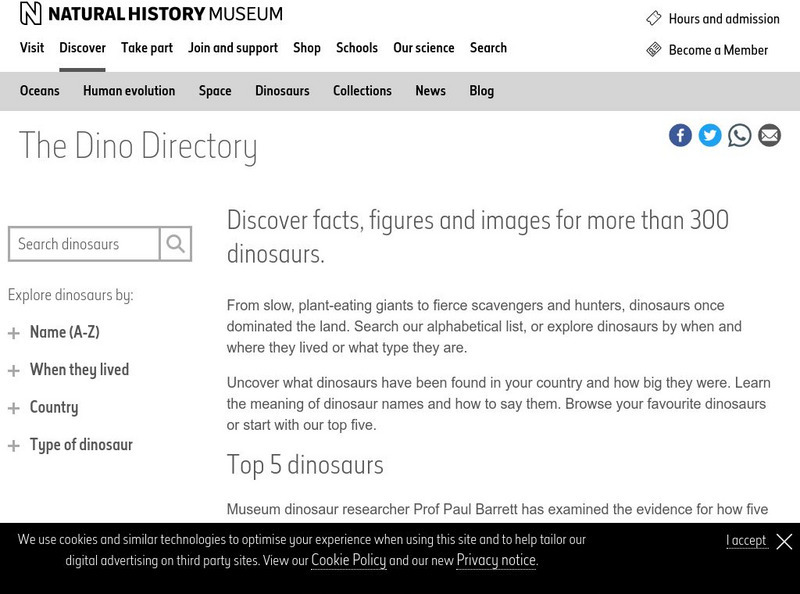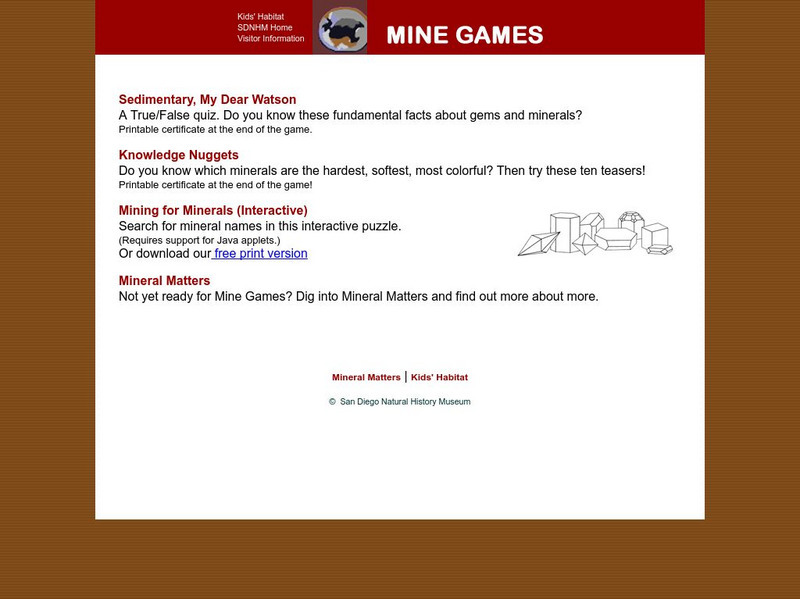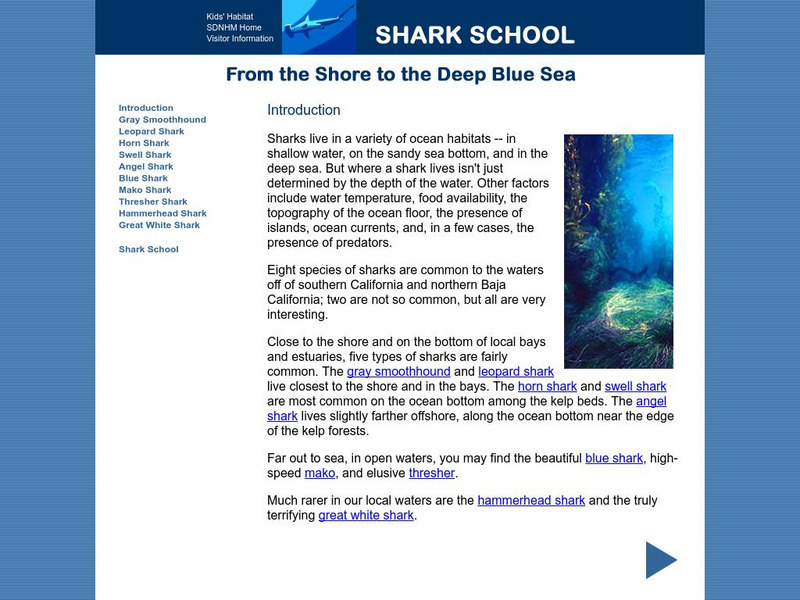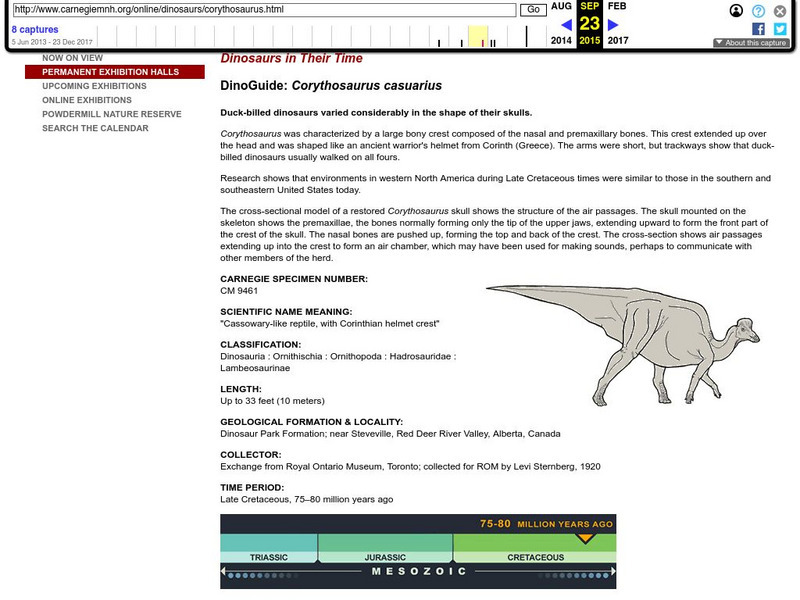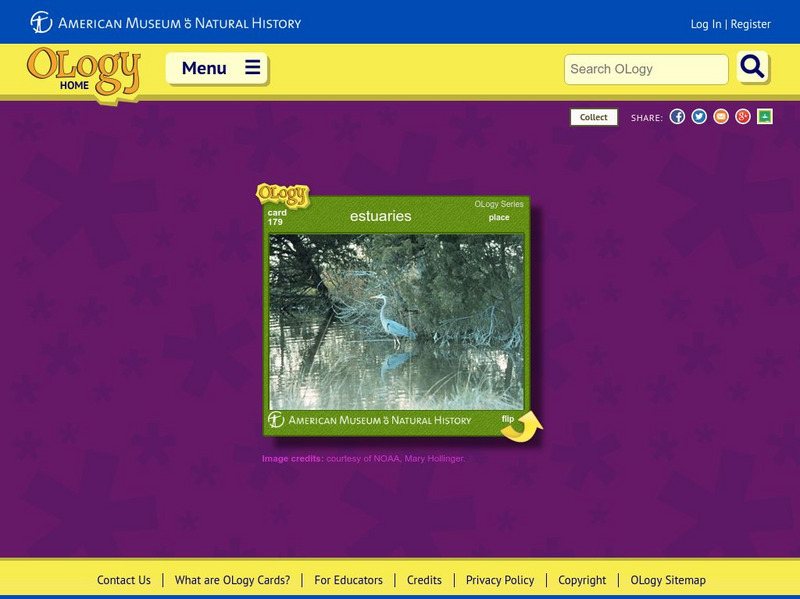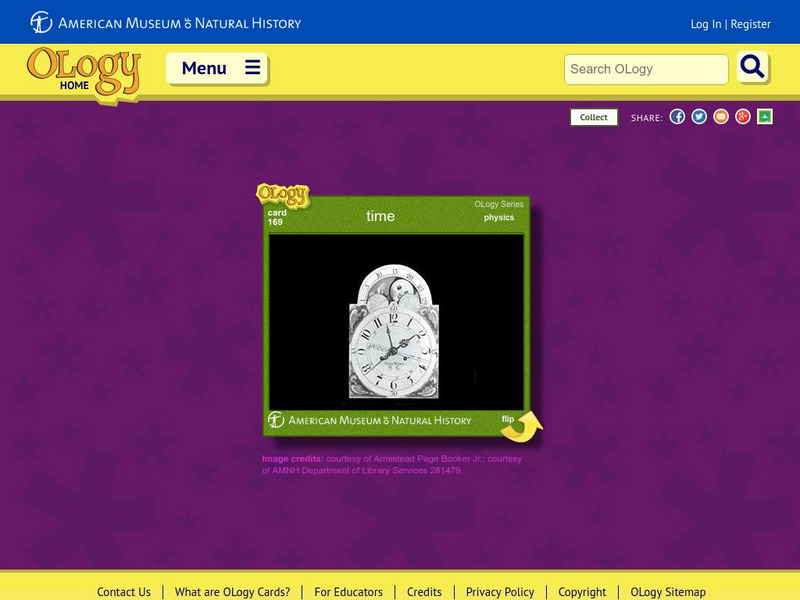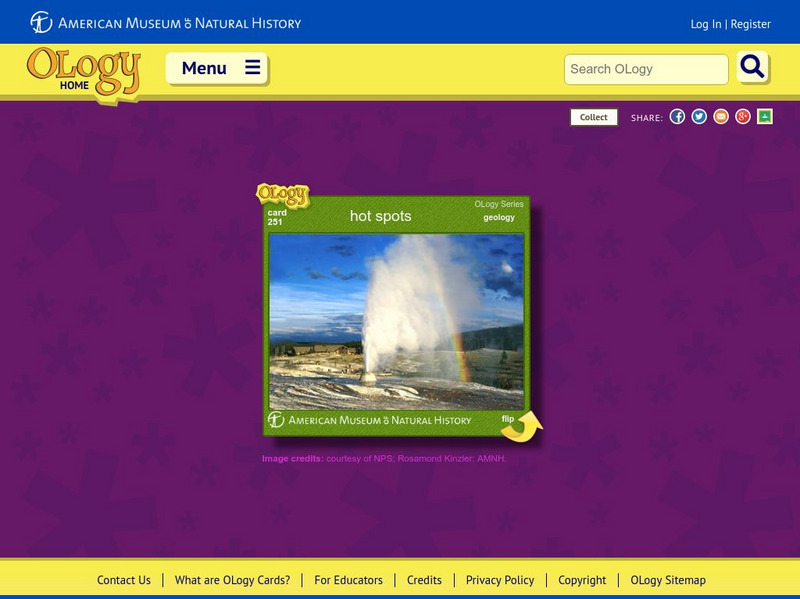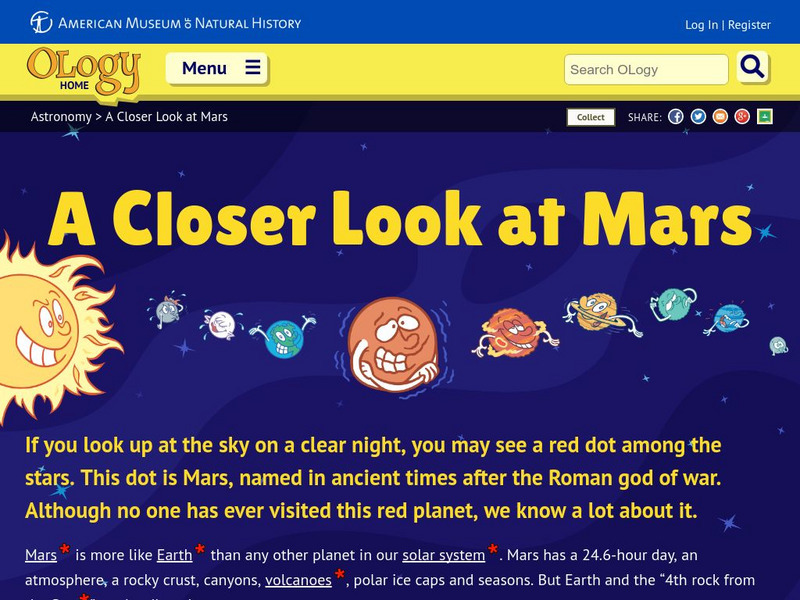Smithsonian Institution
National Museum of Natural History: American Mammals: Hog Nosed Skunk
The Smithsonian Museum of Natural History, in a section titled "North American Mammals," offers a general overview of the North American hog-nosed skunk. Additional content includes detailed drawings, photographs, and a map showing the...
University of Oxford (UK)
Oxford University Museum of Natural History: A to Z of Natural History
Each drawer has been given a letter, and contains a specimen from one of the Museum's collections beginning with that letter. Can you guess what is in each drawer? Test your natural history knowledge now!
San Diego Natural History Museum
San Diego Natural History Museum: Feathered Dinosaurs: Dinosaur Root Words [Pdf]
Go to page 7 of this teacher's guide to find dinosaur root words. These can be used to make flashcards. Many of these roots are found in English words. Choose some of these root words and identify at least one corresponding English word.
Natural History Museum
Natural History Museum: Dinosaurs
Discover how, where, and when dinosaurs lived millions of years ago by engaging in interactive games, viewing 3D images, or taking a quiz.
San Diego Natural History Museum
San Diego Natural History Museum: Mineral Matters: Build a Collection
Create your own rock and mineral collection. Site shows you how to clean minerals, get organized, and it gives suggestions for display and storage.
San Diego Natural History Museum
San Diego Natural History Museum: Mineral Matters: Frequently Asked Questions
Frequently asked rock and mineral questions are answered and illustrated.
San Diego Natural History Museum
San Diego Natural History Museum: Mineral Matters: Mine Games
Learn about minerals and have fun, too, playing Sedimentary, My Dear Watson, Knowledge Nuggets, Mining for Minerals (Interactive), and Minerals Matter. Downloadable features.
San Diego Natural History Museum
San Diego Natural History Museum: Shark School: Shark Faq's
Do sharks blink? How many rows of teeth do sharks have? Discover the answers to these questions and many more as you peruse this website.
San Diego Natural History Museum
San Diego Natural History Museum: Shark School: From Shore to the Deep Blue Sea
Small site provides information on different types of sharks: mako, thresher, hammerhead, horn, and others.
Natural History Museum
Natural History Museum: Volcanoes
Learn about the role volcanoes have played in shaping the Earth by engaging in interactive activities such as building a volcano or learning about the lava, water vapor, and gases that erupt from volcanoes.
American Museum of Natural History
American Museum of Natural History: Living Large
This engaging game about dinosaurs allows students to analyze and interpret fossil data, as well as engage in argument from evidence. The game helps students to understand that fossils provide evidence about the types of organisms that...
American Museum of Natural History
American Museum of Natural History: O Logy: Meet the Zooarchae O Logist
An interview with Sandra Olsen, a zooarchaeologist studying the history of horses in Kazakhstan. Discover what zooarchaeologists work on in the interview.
American Museum of Natural History
American Museum of Natural History: Ian Harrison, Ichthyologist, O Logy Card
This OLogy card introduces you to ichthyologist Ian Harrison, a researcher for the American Museum of Natural history. Learn what led to Ian's interest in fish and what it is like to be a working scientist.
Carnegie Museum of Natural History
Carnegie Museum of Natural History: Carnegie's Dinosaurs: Dino Guide: Corythosaur
Study a Corythosaurus up close with this concise resource from the Carnegie Museum of Natural History.
American Museum of Natural History
American Museum of Natural History: O Logy: Around the World With Dna
Pack your bags and go around the world with scientists from the American Museum of Natural History whose research into the DNA of different animal species takes them into the field.
Smithsonian Institution
National Museum of Natural History: American Mammals: Hooded Skunk
The Smithsonian National Museum of Natural History, in a section titled "North American Mammals," offers a general overview of the hooded skunk. Content includes detailed drawings, photographs, specimens, and a map showing the skunk's...
American Museum of Natural History
American Museum of Natural History: Nature Versus Nurture O Logy Card
Flip this interactive OLogy card to find questions and answers, fast facts, and other bite-size pieces of information to help you understand the nature-versus-nurture debate.
American Museum of Natural History
American Museum of Natural History: O Logy: Jade
A scientist from the American Museum of Natural History familiarizes viewers with jade, a rare stone from different places around the world. Explore the scrapbook he kept.
Smithsonian Institution
National Museum of Natural History: Human Characteristics: Tools & Foods
Learn about the history of how humans have used tools to meet their need for food, beginning with the ancient tools our ancestors used millions of years ago. Non-human primates also use some tools.
American Museum of Natural History
American Museum of Natural History: Estuaries O Logy Card
Turn over this interactive OLogy card to find fast facts, questions and answers, and similar bite-size pieces of information to help you understand the nature of estuaries.
American Museum of Natural History
American Museum of Natural History: Time O Logy Card
Flip over this interactive OLogy card to find short overviews, fact-or-fiction questions, and similar bite-size bits of information about the nature of time, time travel, atomic clocks, and the general theory of relativity.
American Museum of Natural History
American Museum of Natural History: Hot Spots O Logy Card
Hot spots in the earth's mantle create natural phenomena like geysers and volcanoes. Learn about hot spots by reading this interactive ology cards and answer questions when you're finished.
Carnegie Museum of Natural History
Carnegie Museum of Natural History: The Iroquois of the Northeast
This site provides a brief look at the history of the Iroquois. The site has information about food, handwork, survival, and modern life.
American Museum of Natural History
American Museum of Natural History: O Logy: A Closer Look at Mars
If you look up at the sky on a clear night, you may see a red dot among the stars. This dot is Mars, named in ancient times after the Roman god of war. Although no one has ever visited this red planet, we know a lot about it. This site...

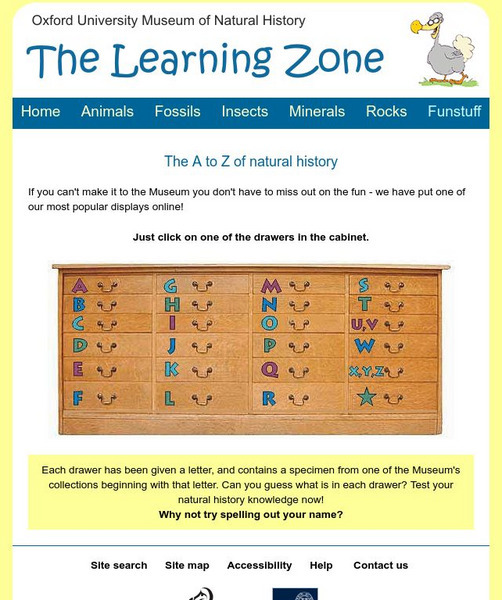
![San Diego Natural History Museum: Feathered Dinosaurs: Dinosaur Root Words [Pdf] Lesson Plan San Diego Natural History Museum: Feathered Dinosaurs: Dinosaur Root Words [Pdf] Lesson Plan](https://d15y2dacu3jp90.cloudfront.net/images/attachment_defaults/resource/large/FPO-knovation.png)
